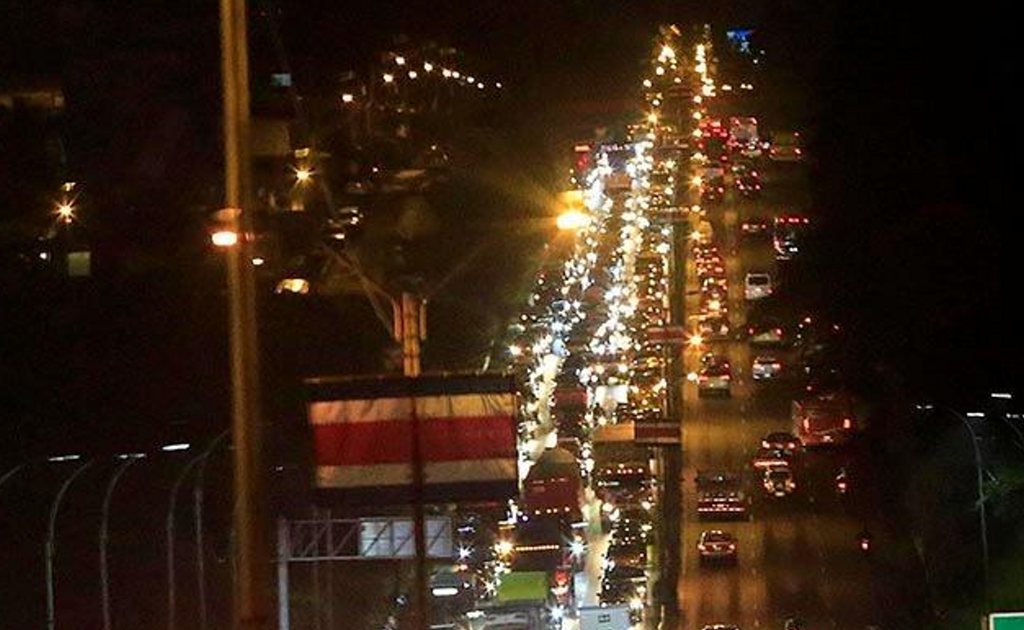QCOSTARICA — Costa Rica, with a score of 91, is the 37th freest country in the world according to a report published in February by Freedom House, a human rights organization based in Washington D.C., United States.
The NGO evaluates people’s access to political rights and civil liberties, ranging from the right to vote to freedom of expression and equality before the law, in 210 countries and territories.
The electoral process, political pluralism, and participation, the functioning of the government, freedom of belief, the rights of association and organization, the rule of law, and personal autonomy are also analyzed.
– Advertisement –
Each country obtains a score on a scale from 0 to 100 and is classified as: free, partially free and not free. Global freedom statuses are calculated on a weighted scale. See the methodology.
With 91 points, Costa Rica is considered free, ranking 37th in the world and 3rd in Latin America, behind Uruguay (96) and Chile (94).
In the category of political rights it obtained 38 points out of 40, while in civil liberties it obtained 53 out of 60 possible points.
“Costa Rica has a long history of democratic stability, with a multiparty political system and regular rotations of power through credible elections. Freedoms of expression and association are robust. The rule of law is generally strong, though presidents have often been implicated in corruption scandals. Among other ongoing concerns, violence related to drug trafficking and organized crime is rising sharply,” the report states.
The lack of freedom for unions or other similar professional organizations is another of the country’s negative points, according to the study.
– Advertisement –
“Although unions are free to organize and carry out frequent protests and strikes with minimal government interference, the law requires a minimum of 12 employees to form a union, which can affect union rights in small businesses. Union membership rates in the private sector are low, due in part to employers discriminating against union members and sometimes firing workers who try to form unions. A 2020 reform introduced a series of restrictions on strikes, including limits on their legal justifications and salary suspensions for those who participate in them,” the report adds.
Likewise, the issue of violence against women continues to be a problem, despite the fact that in recent years the laws against feminicide have been expanded and the penalties for this crime have been increased.
At the top of the freedom scale is Finland, the only country with a perfect rating, while at the opposite end is the territory (a territory as opposed to an independent country) of Nagorno-Karabakh, with a -3 score.
The top 5 freest countries in the world according to Freedom House are:
– Advertisement –
- Finland, 100
- New Zealand, 99
- Sweden, 99
- Norway, 98
- Canada, 97
In Latin America:
- Uruguay, 96
- Chile, 94
- Costa Rica, 91
- Belize, 87
- Argentina, 85
- Panama, 83
- Brazil, 72
- Colombia, 70
- Dominican Republic, 68 (Partly Free)
- Ecuador, 67 (Partly Free)
- Bolivia, 66 (Partly Free)
- Peru, 66 (Partly Free)
- Paraguay, 63 (Partly Free)
- El Salvador, 53 (Partly Free)
- Guatemala, 46 (Partly Free)
- Nicaragua, 16 (Not Free)
- Venezuela, 15 (Not Free)
- Cuba, 12 (Not Free)
An Overview of Costa Rica
The report states the Key Developments in 2023:
-
- President Rodrigo Chaves continued to verbally attack journalists and target the owners of media outlets, including by calling journalists at one critical outlet “political assassins” in January and allegedly attempting to intervene in a child custody dispute involving the owner of the same outlet in August.
- In June, government officials confirmed there were over 250,000 pending asylum applications, and the minister of foreign affairs stated that the increase in migration had overwhelmed the government’s administrative capacity. President Chaves signed an executive decree declaring a national emergency in September.
- Costa Rica recorded a record number of homicides, driven in part by territory disputes between drug traffickers, and authorities struggled to coordinate their responses to the rising violence.
Political Rights: The president is directly elected for a four-year term and can seek a nonconsecutive second term. Presidential candidates must win 40 percent of the vote to avoid a runoff. Elections for the president and the 57-seat unicameral Legislative Assembly occur every four years and may not run for two consecutive terms, but may run again after skipping a term. People have the right to organize in different political parties without undue obstacles.
Functioning of Government: Costa Rica’s freely elected government and lawmakers set and implement state policy without interference. However, legislative gridlock remains a systemic issue. Costa Rica’s anticorruption laws are generally well enforced, and the country has functional anticorruption mechanisms. Several high-profile corruption investigations involving bribery, misuse of public funds, and influence peddling were ongoing at the end of 2023. Citizens generally have access to government information.
Civil Liberties: Freedom of the press is largely respected in Costa Rica. Defamation laws are on the books, but imprisonment was removed as a punishment for defamation in 2010. Roman Catholicism is the official religion, but the constitution guarantees the freedom of religion, which is generally respected in practice. Academic freedom is constitutionally protected and generally upheld.
Rule of Law: The judicial branch is generally independent and impartial. Supreme Court judges are elected by a supermajority of the legislature. Prosecutors and judges are able to investigate public officials.
Personal Autonomy and Individual Rights: Freedom of movement is constitutionally guaranteed. Costa Ricans enjoy relative freedom in their choice of residence and employment. Property rights are generally protected. The business climate is relatively open, and individuals are free to establish businesses, although bureaucratic obstacles often delay the process of acquiring permits.
– Advertisement –
Source link
Rico



